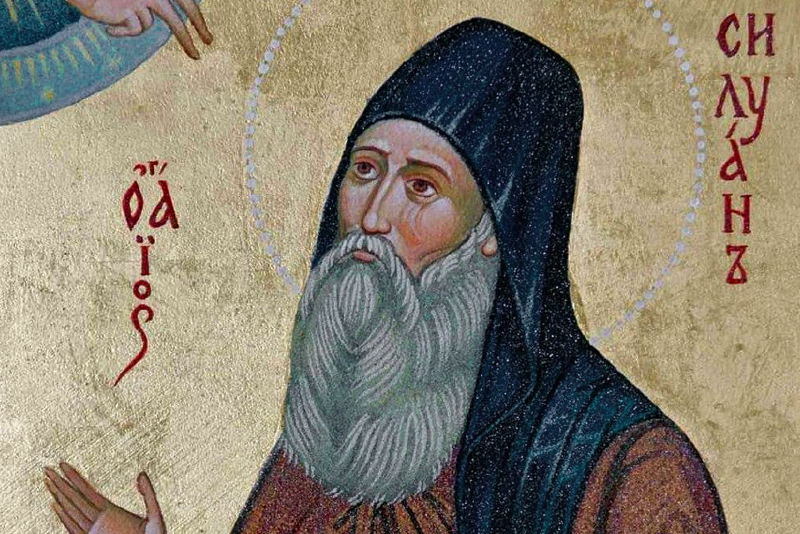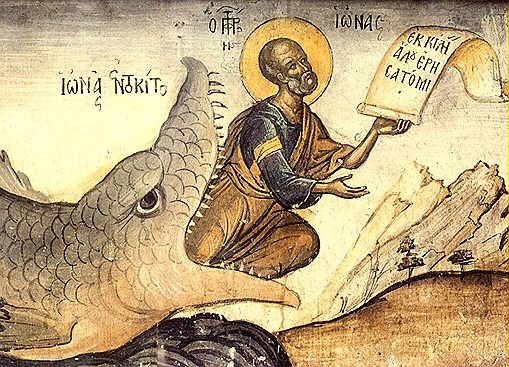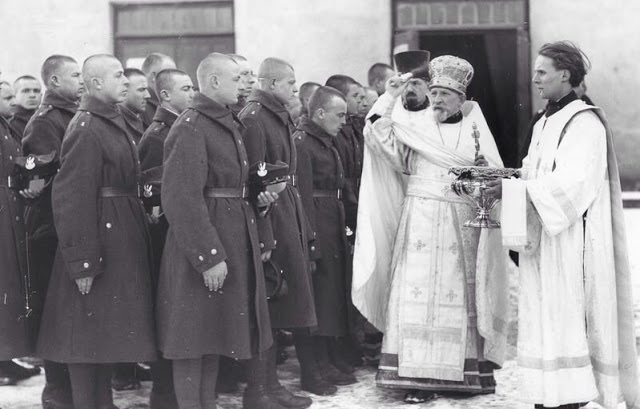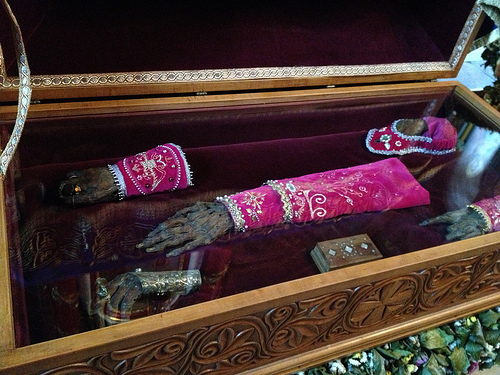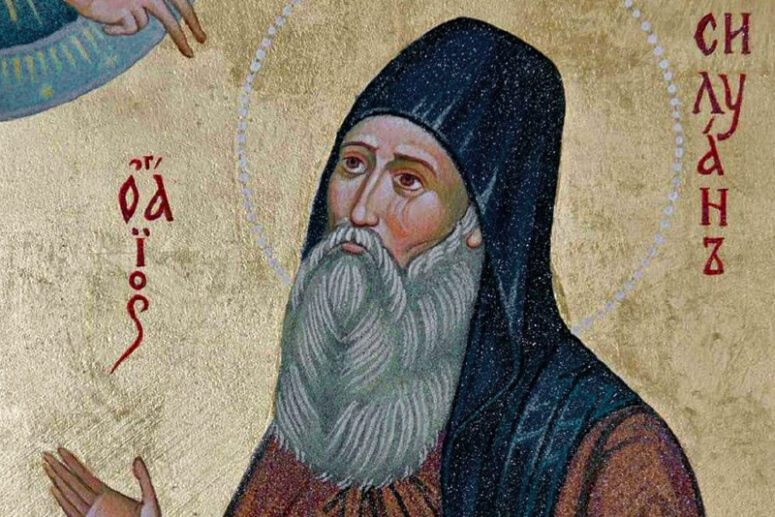
Quite a lot has been said about him, and I’m unlikely to write something new here. When you read the lives or works of the holy fathers, refer to their statements, you often miss some important nuances. This is exactly what happened when I was reading about St. Silouan. Many of us know his teaching: “Keep your mind in hell and do not despair,” but in fact these are the words of Christ addressed to the elder.

Everyone, perhaps, will agree that the above phrase is remarkable, but it does not go further than this agreement. Words do not touch us, do not motivate us to take specific actions, do not make us to think more deeply about them. And of course, it’s not about the words, because we simply often do not realize what is behind them or in what conditions they were pronounced. The famous French Orthodox theologian Jean-Claude Larcher in one of his works paid a lot of attention to comprehending the above phrase just on the basis of the heritage of St. Silouan, which I would like to share.
To begin with, it is necessary to recall when Christ said it to the elder. This was the second appearance of the Savior to St. Silouan, the first happened fifteen years earlier. When the Athos ascetic was praying in his cell, then suddenly a huge demon, blocking the icons, stood in front of him and waited for worship. At the same moment, many other demons flew into the elder’s room, and they tried with all their might to destroy his prayer. Saint Silouan cried out: “Lord, you see that I want to pray to You with a pure mind, but the demons do not let me. Teach me what should I do so that they do not bother me? “- to which the Savior replied:” The proud always suffer from demons. ” Then the elder said: “Lord, teach me what I must do so that my soul become humble,” and then the words of Christ known to us are heard: “Keep your mind in hell and do not despair.” This vision greatly influenced the life of St. Silouan, from now on the Lord’s instruction becomes the most important rule and keynote of all his actions. But really, when you realize how and when the phrase we are considering was pronounced, then your attitude towards it somehow changes.
Now, just as Jean-Claude Larcher did, let’s break this instruction into two parts: 1. Keep your mind in hell; 2. and do not despair; and we will analyze each of them separately.
The first part of the phrase has several dimensions. Elder Silouan draws attention to the fact that we ourselves sometimes refer to difficult life circumstances as hell, therefore “keeping the mind in hell” is a patient and uncomplaining endure of these circumstances. As could be expected from an ascetic, he sees the root of suffering in pride: “People do not learn humility and for their pride they cannot accept the grace of the Holy Spirit, and therefore the whole world suffers.” We remember that the Savior himself accused him of lack of humility, and, naturally, St. Silouan learned this perfectly, and therefore he asks us: “Why does a person suffer on earth, bear sorrow and suffer troubles? We suffer because we do not have humility. ” He was sensitive to the sufferings of people in this world, and therefore, starting from himself, he noted that it is from them (that is, from earthly sufferings) that hellish sufferings begin: “For my deeds I am worthy of torment both on earth, and in hell. “
The next meaning of the first part of the phrase is directly related to the action of demons. Infernal beings, being, let’s say, the inhabitants of hell, are present and act on earth as well, which is why a conscious struggle with them, opposition to them should be an integral part of the Christian life. The elder himself was repeatedly exposed to an open attack by demons, moreover, he saw them not only at night, but also during the day. He suffered from their pressure for many years. We, of course, are far from the height of his spirituality, and therefore the Lord does not allow us such an obvious battle, because we simply cannot bear it. But here’s what’s interesting: “For my pride,” says St. Siluan, – the Lord allowed the enemy to twice wrestle with my soul so that my soul stood in hell, ”and further he specifies what was the manifestation of pride: “Although sins are forgiven, one must remember and grieve about them all one’s life in order to keep contrition. I did not do that, and I stopped contriting, and I suffered a lot from demons… Who, like me, has lost grace, let him courageously fight with demons. The Lord graciously lets you know … what it means to be in the fight with demons. ” Thus, we see that the abandonment of repentance and contrition for old sins is the manifestation of pride, because of which the Lord allows the action of unclean spirits. I think that this instruction is quite relevant for our spiritual life as well.
So, let’s summarize what has been said: according to the opinion and personal experience of St. Silouan, there is a direct connection between pride (and its marked manifestations) and the torment inflicted by infernal entities on this earth, and the only antidote is humility. Saint Anthony the Great, for example, says the same: “Once I saw all the nets of the enemy spread out on earth, and with a sigh I said: who can escape them? – but heard a voice saying to me: “Humility”.
The state of God-forsakenness is inextricably linked with the action of demonic forces, the embodiment of which is the demon who stood between the icons and the ascetic during prayer. The courageous endure of this state, together with the constant desire to find grace again, is another semantic level of the first part of the phrase in question. “Oh, brethren,” writes St. Silouan, – if you could understand the yearning of a soul that bore the Holy Spirit and then lost Him. This yearning is unbearable. The soul is then in indescribable sorrow and grief… When the soul loses grace, then it misses the heavenly and tearfully seeks the Lord. “
If we try to bring everything that has been said into one thought, to summarize, then the instruction of the Athonite elder will look something like this: “Keep in mind that because of your sins you deserve punishment and hellish torments.” Saint Silouan himself repeatedly reminds himself that he is worthy only of hell: “I am not worthy of God and heaven. I am worthy of the torments of hell and I will burn in fire forever, ”he also writes in another place: “You need to consider yourself worse than everyone else and condemn yourself to hell … It is good to teach your soul to think: “I will burn in hellish fire.” The only salvation here is a deep awareness of our sinfulness and condemnation of ourselves. It turns out that humility and self-condemnation are two sides of the same ascetic deed, allowing you to constantly keep your “mind in hell.” Together, they must be supported by firm trust in God and the constant balance of your strengths with the goals set: “But you need to know your measure, so as not to overwork the soul. Study yourself and give your soul a feat according to its strength, “the elder sums up.
We now move harmoniously to the second part of Christ’s admonition: “… and do not despair.” Saint Siluan calls a state when a person considers himself worthy of hellish torment, but at the same time despairs, a grave sin. It turns out that in such case, despair crushed him: “Many despair and perish. Their souls run wild and do not want to either pray, read, or even think about God, ” the elder writes. He himself says that he once fell into this pit and nearly died: “At one time, a spirit of despair attacked me: it seemed to me that God had completely rejected me and there was no longer any salvation for me, but eternal destruction was clearly seen in my soul. And I felt in my soul that God is unmerciful and unforgiving. This lasted with me for an hour or a little more. This spirit is so heavy and weary that it’s scary to even remember it. The soul cannot bear it for long. In these minutes you can die for all eternity. ” That is why it is so important, having condemned yourself to torment, to have firm trust in God. Each of us has our own inner experience of meeting the Lord when His grace touched our hearts. Perhaps these were some brief moments, of which only one memory remains, but it is on it that the hope should be based that will not allow us to collapse into the abyss of despair: “And if the Lord had not let me know Him by the Holy Spirit,” says St. Siluan – and if the Most Holy Theotokos had not help me, I would have despaired of my salvation. “
The presentation of this article may seem a little chaotic or far from our real life. I understand that most of us will not directly meet demons and hell until our own death, but this does not mean at all that the degree of their action in our life is somehow reduced. On the contrary, demons are our worst enemies and the fact that we are not aware and do not see their work puts our souls in great danger. That is why the experience of such ascetics as St. Silouan the Athonite is extremely important. May God give us all the strength and prudence to listen to him and to realize at least a little his instructions on the path of our personal ascent to the Kingdom of Heaven.
Translated by The Catalogue of Good Deeds
Source: https://pravlife.org/ru/content/prp-siluan-afonskiy-i-ego-opyt-protivostoyaniya-besovskim-silam

